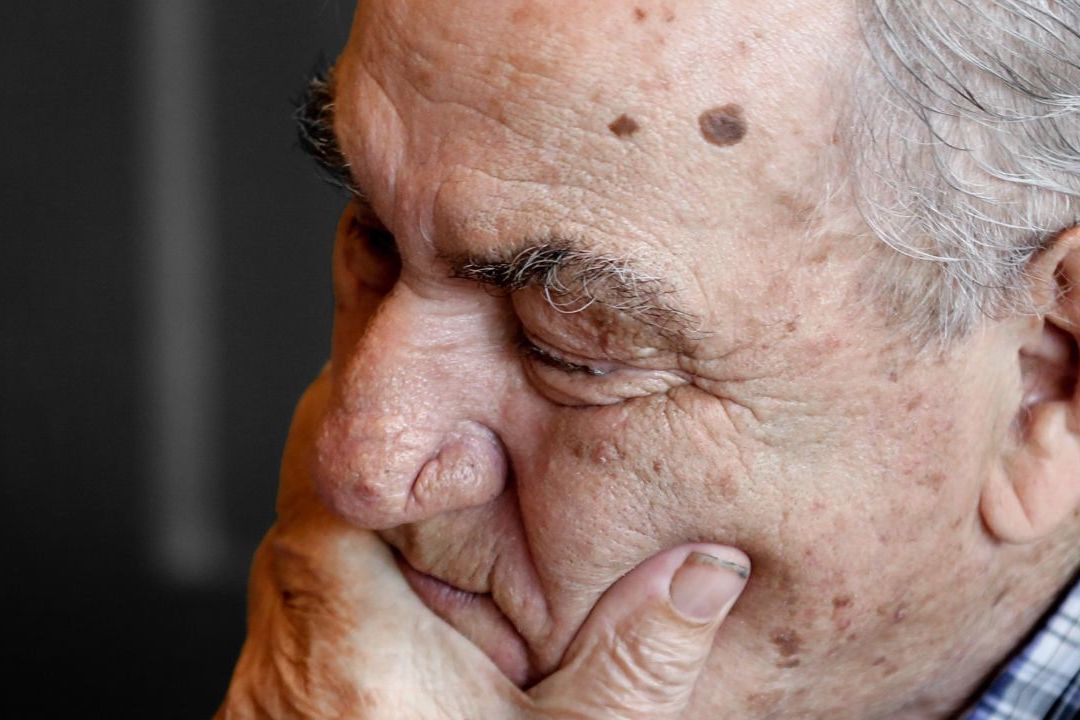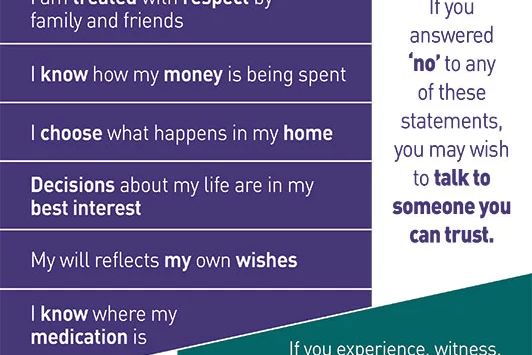Calling out elder abuse
National Seniors Australia today is marking World Elder Abuse Awareness Day by calling out and identifying all forms of elder abuse.

Key Points
- There are five forms of abuse of older people: financial, physical, psychological & emotional, sexual abuse, and neglect.
- Often abuse goes unreported as it happens behind closed doors, perpetrated by people taking advantage of trust.
- Older Australians are now also being targeted by digital scams.
National Seniors Australia today is marking World Elder Abuse Awareness Day by calling out and identifying all forms of elder abuse.
In Australia, it is estimated that as many as 185,000 older people experience some form of abuse and neglect each year.
Every year on 15 June, World Elder Abuse Awareness Day (WEAAD) takes place. It was officially recognised by the United Nations General Assembly in 2011, following a request by the International Network for the Prevention of Elder Abuse (INPEA). The day was first established by INPEA in June 2006.
The World Health Organisation have defined elder abuse as 'a single, or repeated act, or lack of appropriate action, occurring within any relationship where there is an expectation of trust which causes harm or distress to an older person'.
While elder abuse can be physical, it can take on many forms. There are five commonly recognised forms of abuse of older people: financial, physical, psychological & emotional, sexual abuse, and neglect.
National Seniors CEO and Director of Research, Professor John McCallum says most elder abuse is unfortunately hidden because the abuse occurs at home, behind closed doors and elders can’t or won’t act against family or other perpetrators.
“When we talk of elder abuse, many of us think of physical assaults, but elder abuse takes on many forms such as financial abuse.
“As inflation rises and mortgage stress increases so will financial abuse. Ironically this is partly facilitated by the inappropriate exploitation of a powers-of-attorney (POA) which should protect people.
“This is where a family member or friend, trusted with sorting out the financial affairs of an elderly person, abuses that trust and financially fleeces the victim,“ said Professor McCallum.
National Seniors has long been a part of the Australian Banking Association’s campaign against financial elder abuse and has campaigned for uniform POAs across the country to stamp out financial abuse in each state and territory.
“We are proud to be part of this campaign, but there is still much to do, and we know incoming Attorney-General, Mark Dreyfuss is aware that this needs to be addressed,” Professor McCallum said.
He also pointed to the growing crime of digital scams ripping off older Australians.
“This has become so much of a problem that when National Seniors embarked on our wellbeing calls to ring older Australians during the COVID lockdowns, many wouldn’t answer, fearing the call was from a scammer. It causes people to shelter behind closed doors and lose social connections.
“Digital scams need more attention than they are getting and people need help to develop resilience to deal with them,” Professor McCallum said.
Residential care abuse was ‘outed’ by the Royal Commission, but home care also needs better regulation to prevent abuse of seniors receiving care in their home. Home care is growing and covers many more people than nursing home residents who at least have care workers to monitor them.
Professor McCallum says the best way to mark Elder Abuse Awareness Day is to be aware and report any suspected abuse and neglect.
“We should also not forget that neglecting an older person unable to properly look after themselves is also a form of abuse and should be dealt with accordingly.”
Governments across the world have enacted programs and policies to protect older people. In Australia, Age Discrimination Commissioner The Hon. Dr Kay Patterson has been working alongside organisations and government departments to implement the recommendations from priorities outlined in the National Plan to Respond to the Abuse of Older Australians report. The purpose of the national plan is to provide a framework for action over a four-year period.
“It is up to each and everyone of us to stop elder abuse in our communities by knowing the signs and where to get support,” Dr Patterson said.
“Let us join together in saying no to elder abuse today and every day. We are all part of the solution.”
A phone line has been established to aid callers seeking information or advice on elder abuse. Call 1800 353 374 and all calls will be directed to local state or territory phone line services across Australia.

